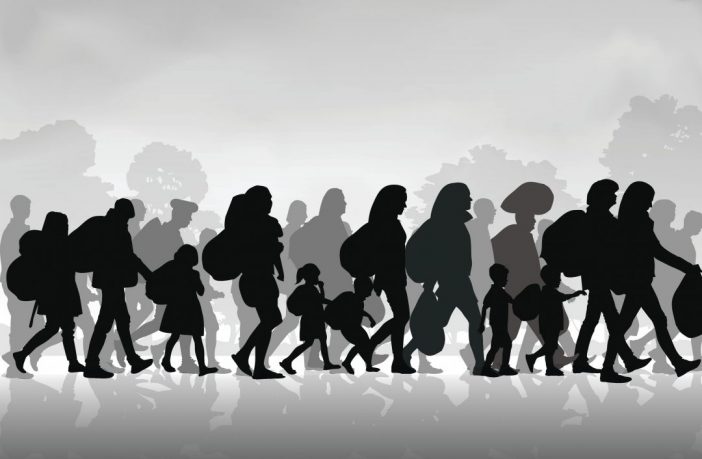It stands to reason that a group called the Migration Policy Institute (MPI) would favor mass movements of refugees, asylum seekers and all manner of immigrants across the globe. To facilitate the migration, MPI analysts are peddling a “New Social Contract for Diverse Societies.”
MPI isn’t so Pollyannaish as to believe that future waves of immigration will arrive gently. “Extreme destitution and homelessness could rise in coming years,” the study cautions in passing.
On the labor front, MPI reasonably predicts, “Continued labor market disruptions are likely to place many existing residents in the same situation tomorrow as newly arrived immigrants are today.” Meantime, the study observes, “Growing numbers of immigrants [are]living on the margins of society.”
What to do? MPI reflexively recycles and restyles policies that have failed thus far. In essence, the “new social contract” socializes costs (child care, health care, housing, education, etc.) while privatizing profits (via an ever-growing supply of cheap and government-subsidized imported labor – legal and illegal).
The notion that a humming economy (even if there was a correlation between large-scale immigration and the hum) will cure social ills is dangerously naïve. Even the study’s authors recognize the fallacious logic.
“Policymakers have assumed that if newcomers enter work swiftly, then all else will follow. [But] growing numbers of immigrants [are]living on the margins of society. It is not clear that newcomers will slot easily into high-wage jobs, even after considerable training.”
MPI’s confused “social contract” hits its nadir by suggesting that “a high concentration of [immigrants]of a particular national or ethnic group can provide the ‘bonding social capital’ to help newcomers find jobs, and can make it easier to tailor services for the populations they serve.” Seriously? Apparently the research team skipped over the skyrocketing crime rates and chronically high levels of government dependency in places like Minneapolis’s dense Somali enclave known as Little Mogadishu.
While embracing the view that mass immigration is inevitable, unstoppable and ultimately laudable as long as it fuels the global economy, MPI’s social engineers conclude their 31-page treatise with this stunner:
“It is time to stop talking about an integrated society as a mythical endpoint. Instead, the conversation should be focused on the skills that all residents need to develop to handle change, and the resilience that communities need to build to allow them to withstand shocks, including those related to migration.”
Translation: We are captive to transpiring events and the desires of people in other countries, and we’d better learn how to adjust. Anyone who thinks there is any kind of an issue with mass migration of foreigners into their communities is welcome to shut their yap and suck it up.
In abandoning “integrated society,” MPI is promoting disintegration — an end to democracy and the right of citizens to shape their own destinies.




